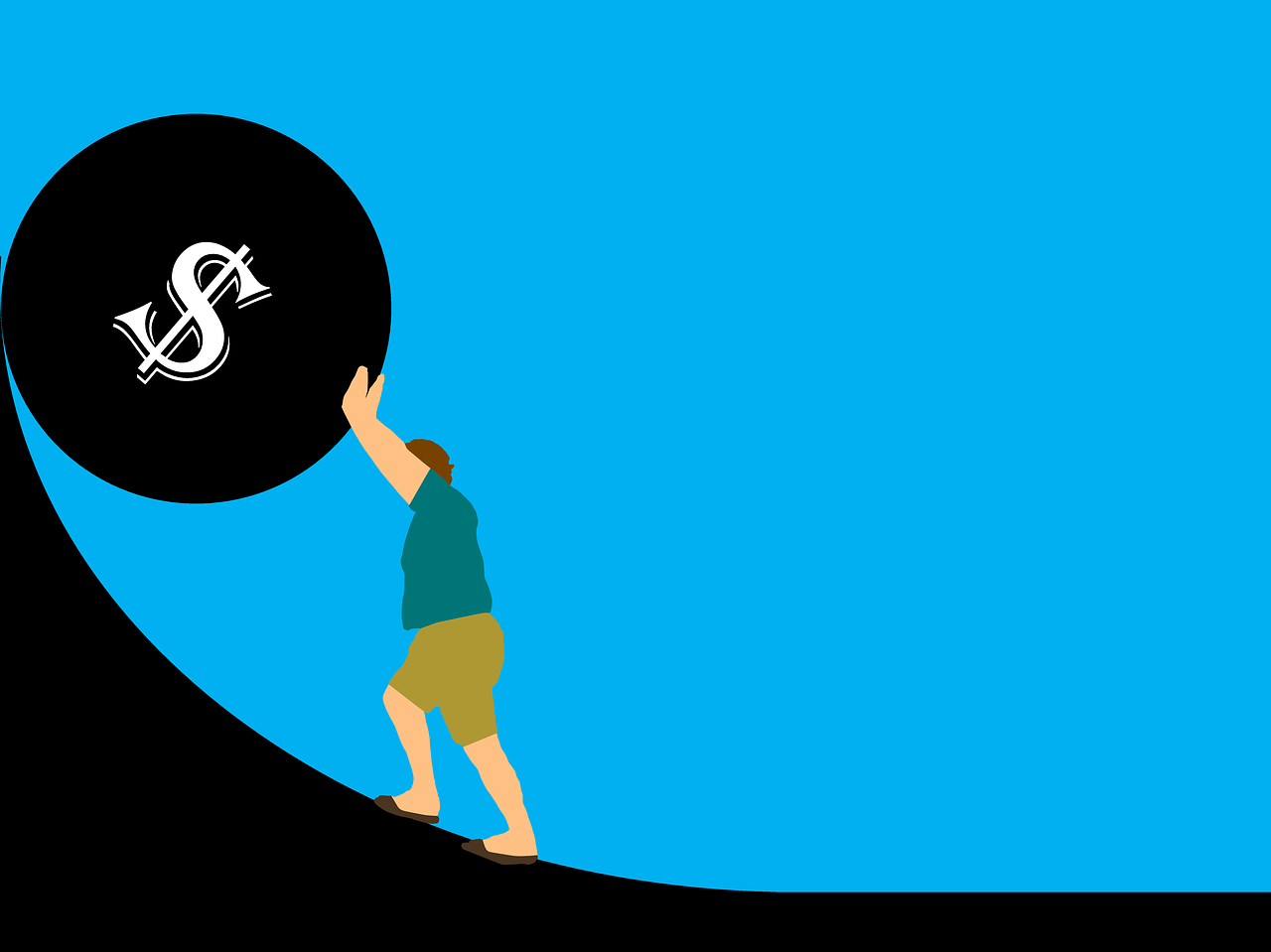How Debt is Holding You Back, and How to Fix It

BLUF: Debt with high interest rates will kill your ability to invest. Use the debt snowball to pay down your debts faster before you start investing.
I grew up poor-ish. Though we sometimes had money, the majority of the time we didn’t. We lived on what we had, but it wasn’t usually much. In this environment, I didn’t learn much about money… and definitely not about investing. Investing was something that rich people did, not us. I had learned almost nothing about money growing up, so that when I finally had a little in the military, I quickly racked up $12,000 on an eBay credit card and bought a $200,000 house with a loan for 104% of the principal… just before the 2008 real estate market crash. These massive mistakes took years to overcome, and could’ve been easily avoided if I understood what I know now.
Consumer debt (i.e. credit cards) is a massive drain on your finances, especially because they usually have high interest rates. By subsidizing your monthly needs with a credit card or personal loans, you are digging a financial hole that will prevent you from investing and building wealth.
Debt is like a negative investment that saps away your wealth instead of building it. For example, if you owe $2,000 on a credit card at 12% APR, you would have to invest $3,428.57 at the stock market’s average 7% return… just to get back to ZERO. You’d need to invest way more than your consumer debt to just break even, which begs the question… Why invest before you have tackled your debts?
Good question. Before investing, dealing with debt should be your first priority on the way to building wealth. The magic of compound interest cuts both ways, so if you have consumer debt, handle that right now.
To this end, Dave Ramsey outlines his “7 Baby Steps” to financial freedom in his many books, including his famous “Total Money Makeover”. Though I disagree with his investment allocation suggestions, I 100% concur his ideas for eliminating debt… especially the debt snowball.
Here are his 7 Baby Steps:
- Save $1,000 in an emergency fund
- Pay off all your debt (except your house) using the debt snowball
- Increase your emergency fund to 3-6 months of expenses
- Invest 15% of your household income for retirement
- Save for your children’s college fund
- Pay off your home early
- Build wealth and give
For today, I want to focus on the first two of his baby steps.
Save $1,000 in an emergency fund:
Dave Ramsey recommends that, before you do anything to fix your debt or invest in the future, you need to create an emergency fund. This fund is to pay for unexpected expenses that come up, like car repairs and the like.
Why does he recommend this? Because, if you have no emergency fund, you’ll have to go into debt to pay for an emergency. By creating this fund, you’ll have a little money to handle life’s little road bumps without having to finance them with loans or credit cards.
Pay off your debt (except your house) using the debt snowball.
What is a debt snowball? It is perhaps the most elegant way to stay motivated to crush your debt… one debt at a time. You start by listing all of your debts (except for your mortgage) from smallest balance to largest balance. Ignore interest rate. Aggressively pay down your smallest debt (while paying minimum payments on everything else). When that smallest debt is gone, put that money into paying down your second-smallest debt. Rinse and repeat.
You might argue, wouldn’t it be smarter to pay off the highest interest debts first? Mathematically, yes. But, the debt snowball is all about creating momentum. It gives you a sense of accomplishment when you pay down your first debt, and that feeling helps keep you motivated to pay off the second. Then the third. Soon enough, you are paying off your largest debt and clearing your way to start investing heavily.
Bottom Line: As long as you have large consumer debts (especially at interest rates above 6-7%), it will be nearly impossible to gain enough through investments to do more than break even. Attack your debt and clear the way to maximizing your investments.
————-
We recently finished our own path to becoming debt-free (minus our home and rental mortgages). Paying off our car loan and an old TSP loan cost thousands of dollars, but has allowed us to now redirect those payments and increase our investments by several hundred dollars every month.
If you are interested in learning more about eliminating your debts, I would recommend the audiobook version of Dave Ramsey’s “Total Money Makeover”. As a radio host, Dave is a compelling storyteller and his enthusiasm is infectious. His book is available through the DoD MWR Library (via the Libby app), as well as on sale at Amazon.